China and the New Nomos of the Earth
The world stands at a paradigm shift; a thunder of meeting, fighting tectonic plates. Vaclav Klaus, in his latest article in 'The Hungarian Conservative' laments the passing of an old order. The move from one epoch to another is reminiscent of Mathew Arnold's poem 'Dover Beach' where the ebbing of the sea of faith had ceased caressing the shores of the world. Now is ‘the melancholy, long, withdrawing roar, retreating, to the breath of the night-wind’[1]. Likewise, the thunder of change beckons in the dismantling of Westphalia and the end of a unipolar liberal world.
The Peace of Westphalia of 1648 ended the Thirty Years War, ostensibly between Catholic and Protestant Europe; a war in which approximately eight million people had died. The Peace gave birth to the idea of 'Westphalian Sovereignty' - from the ruins of the certainty of the Holy Roman Empire. For our purposes, although Westphalia was not tantamount to the birth of nation states, it did establish a conception of the sacrosanct nature of borders and a right to self determination. This type of sovereignty has now faced challenges from two fronts after 300 years of its principled acceptance, although not 'rigorous' application. Firstly, there came the tsunami of globalisation - and, like its predecessor, 'Bretton Woods', toppled national frontiers in its ebullient energy. This was the self satisfied 1990s, that sad decade when 'The End of (Insert Idea)' followed one after another, when historians, in true Hegelian hysteria competed to forecast the end of something or other. The 'End of History' was here; it was a triumph of Enlightenment virtues, a liberal democratic mission to be exported, of capitalism and coca cola.
That era of Occidental thinking is drawing to a close. When the 'New World' discoveries and Britain's maritime ascendancy set in motion the modern 'Nomos' of the world from the fifteenth century onwards, that also appeared fixed and certain. Each epoch believes the permanence of its ideal, its territory and 'nomos'. Nomos was the Greek phrase Carl Schmitt used to describe these lurching, giant states (or civilisational states) and their remit to conquer the world, from the Roman Empire onwards. 'Nomos' derives from a state's geographical, cultural and resource domination. The 'ius publicum Europaeum' which came out of the end of the Holy Roman Empire formed the basis for European hegemony. The curse of progress, its Achilles heel is to believe in the eternity of the present.
The new 'Nomos' of the earth is not globalisation or liberal democracy. It is not Islam. In fact, it is something fed and nurtured by all empires or civilisations once they lose the spirit of their early hegemony and hand over the keys to a competitor; it is a type of complacency. They wave goodbye to the ethos which made them successful in the first place. Homogeneity is a key to successful empire.
Chinese Foreign Minister Wang Yi speaks of how Xi Jinping has strived to transform the present structure of International Relations. Xi has 'made innovations on and transcended the traditional Western theories of international relations for the past 300 years'[2], with a striking iconoclastic reference to Westphalia. This again is at odds with the, up to now, prevalent view of China, as the distant, insular, Silk Road repository of Confucian splendid isolation. The Occident, wearing its 'Kulturbrille', only sees what it wants to see, a benevolent world of liberal democratic norms.
As Gloucester warns in King Lear, 'Tis the times plague, when madmen lead the blind.' The Faustian pact between Russia and China is not a causal necessity of the Ukraine conflict but an alliance to systemically rewrite the Nomos of the world. The Chinese have a phrase 'Tianxia' - 'All Under Heaven' which places order and conformity above all else. The emperor was always, not merely the Emperor of China, but of the world. Chinese thinking equates the existence of one sun to one earthly ruler. The emperor was akin to the divine right of European kings. The Qin Han dynasty, from the third century BC, saw a Confucian Legalism which ruled for more than two millennia in Eastern Eurasia, until the end of the nineteenth century.
Modern China is resurrecting this dynasty of tributary taxation, through economic dependence, soft loans and creating a Chinese diaspora throughout Asia and Africa. The Occident, like Oedipus, has gouged out its eyes of perception, a willing blindfolding for the outsourcing of manufacturing capacity and cheap imports. Yet in China, according to Wang Fei Ling, 'foreign policy analysts have presented the rejuvenated 'Tianxia' idea as a legitimate or superior alternative to and powerful critique of the Westphalia world order'[3].
It is a mythical, easy sell to the Chinese population, with a hereditary view of other Asian states as tributary. Ideas based, civilisational states, like China and Russia, utilise narratives of historic destiny, like the 'conservative revolution' thinkers of Weimar. These states see their goals as long term and historic, divinely ratified. They see beyond the short termism of representative democracy. Economic growth is just one aspect of a destiny. Western notions of 'progress' are aligned to a colonial view of globalisation. It is a Westphalia 2.0 : nation states and FDI driven global capital. The winner of this race is able to utilise resources, investment and labour. China has arrived late at the party; but they have arrived.
Not surprising that the pushback by Russia also focusses on this perceived imbalance. The war in the Ukraine was not a sudden vision by Putin. The Russians use planning trajectories for their economy and geopolitical forecasting. In 2022 the RAND Corporation[4] published 'Russian Military Forecasting and Planning' based on research since 2019. The main weakness of the Occident is short termism with regard to forecasting and planning. It is endemic to the west's government. This works in two ways. It reduces the ability to see long term, beyond the next election. The western focus on liberal norms, rights and global democracy only works in a game theory played by everyone. Once the Westphalian system of nation states became consumed by empire building and now, globalisation, the 'quid pro quo', the balance, was gone.
The Rand report postulates that Russia sees the geopolitical dynamic as having two possible paths. One is the continuance of a unipolar world of liberal governance, globalisation based on a western financial system and US dominance in foreign policy. The second alternative is a Russia probing and attempting to dismantle this hegemony. This is due to their perceived inability to achieve economic goals, access to capital and technology. An axis consisting of China and Russia makes this much more likely. The Ukraine war is not about the Ukraine. It is this vying for position; it is this intrinsic planning, what the Russians call a 'VPO' analysis, which sees its strategy as a long game. Underlying all of this is a military perspective which needs to match adversaries. The Russians forecast[5] that, under existing trajectories of globalisation, by 2040, the US will be 60% stronger in military capacity. Globalisation is a Janus- faced chalice for Russia; at once a source of oil revenue, yet potentially debilitating. Economic sanctions compound the problem, and restrict access to technologies and capital. For the Russians war is a means to disrupt the flow of geopolitics. The second alternative sees a VPO of a reformed military balance in which China, by 2040, equals the US in military capability and the Russian deficit is reduced to 20 %.
This vision, called 'Bipolarity 2.0' now drives Russian and Chinese policy. It aims to create favourable blocs in BRICS ( Brazil, Russia, India, China, South Africa) and the SCO (Shanghai Cooperation Organisation). Yet, faced with losses of weapons and manpower in the Ukraine, the Russian game is spluttering. The technological boycott could be brutal for Russia. Hence the Russian 'soft' policy of building alliances with western dissidence; in the parties of a 'cultural' diaspora who see the negative dynamic of globalisation culture. Hungary, Serbia, Italy and the US have a populist groundswell of democratic resistance to liberalism. This may be a fertile ground for Russia as western norms deracinate their own societies from the inside. The oft quoted 'liberal democracy' is fraught with contradiction. Representative democracy is a miasma of democracy; it is a system to regulate and administer an international system of capital flows dependent on migratory cheap labour and resources. Elite manipulation is now noticing pushback in liberal democracies as a working class, culturally disenfranchised bloc supports more nationalist, indigenous populism. This may be a bigger threat than the external great power game.
For the Chinese 'Tianxia' is back on the agenda after the hiatus of communism. China, according to Kissinger 'considered itself, in a sense, the sole sovereign government of the world'[6]. For Xi Jinping, China becomes a middle kingdom of tributary vassal states. 'Tianxia' brings order to the chaos of Westphalia. It is this fusion of idealised myth and realpolitik which drives China and Russia. The borderless tributary empire of the Chinese Emperors and the endless steppe of Dostoyevsky's Russia. The rhetoric of China's 'Global Security Initiative' of April 2022, continued the underlying vogue of expansive dominance. It was 'security for all in the world...and oppose the pursuit of one's own security at the expense of others'[7]. There is also a rebuffing against the internal damage of globalisation to core Chinese cultural values, 'Geliguojia' or 'separated country' of the emperors. It is the best of both worlds for Xi Jinping and a continuation of Mao's vision of communism on a world scale.
Therefore, two suns are setting on the world; the Westphalian one of 300 years and the Chinese one of the 'Qin Han' dynasties. Yet for the Chinese there is only the one sun in heaven and they refuse to play second fiddle to the west. In part 'revanchist', a settling of scores from the days of colonial powers, and an assault on the weakness of western liberal cultures. It is a sore test for the sons of the Enlightenment and for the architects of Westphalia who ditched the civilisational state of the 'Holy Roman Empire' for the solace of independent states. Nevertheless, the weaknesses of authoritarian, top-down states such as Russia and China are their increasing reliance on a type of expansive nationalism. Civilisations are eclipsed, not by external threat, but by internal incoherence. In this, both the Occident and the Orient are obscured by haze; a lack of a moral teleology hinders both. Resources and geopolitics signify a lack of Plato's 'care for the soul'. Bound to the wall of Plato's cave, it will take an epoch shifting Spenglerian change to drag humanity from the cave of its own making and into the blinding sunlight.
[1] Middlebrook, J. (1970). Matthew Arnold: Dover Beach.
[2] Ministry of Foreign Affairs, “Forge Ahead under the Guidance of General Secretary Xi Jinping’s Thought on Diplomacy,” September 1, 2017, http://www.fmprc.gov.cn/ mfa_eng/zxxx_662805/t1489143.shtml. And “China Says Xi Transcends West as a Diplomatic ‘Pioneer,’” Reuters, September 1, 2017, https://www.reuters.com/article/
[3] Wang, Fei Ling. (2018). China Order: Centralia, World Empire, and the Nature of Chinese Power. State University of New York PR.
[4] https://www.rand.org/pubs/research reports/RRA198-4.html
[5] https://www.rand.org/pubs/research reports/RRA198-5.html
[6] Kissinger, H. (2015). World Order: Reflections on the Character of Nations and the Course of History. Penguin Books.
[7] Xi Jinping, 'Rising to Challenges and Building a Bright Future through Cooperation'. Boao Forum for Asia Annual Conference 2022, April 21, 2022, http://english.www. gov.cn/news/topnews/202204/21/content_WS62616c3bc6d02e5335329c22.html
Read also
Francis Fukuyama and the Philosopher's Stone
In the 1990s there was a type of vulgar complacency in the social sciences. This was ushered in by the after effects of the Cold War which, it was presumed, meant the 'end of' something or other. The 'end of ideology', the 'end of history'; a supposition that the damaging 'ideologies' of the twentieth century were exposed and dismantled.
Brian Patrick Bolger
Charles III and the Coronation: 'Government of Himself'.
It was TS Eliot who remarked that 'When a term has become so universally sanctified as 'democracy' now is, I begin to wonder whether it means anything, in meaning too many things'.
Brian Patrick Bolger
AI - 2023: The Ghost in the Machine is Out
If we were to ask one dominating question about the Artificial Intelligence debate then it should be this one: What makes human beings special?
Brian Patrick Bolger
Even the Poets are Killing: Fico and the New Iron Curtain
The Slovak 'Lee Harvey Oswald' was a 71 year old poet. It's what poets do these days. No waltzing around daffodils in the Lake District or smoking Opium a la Coleridge.



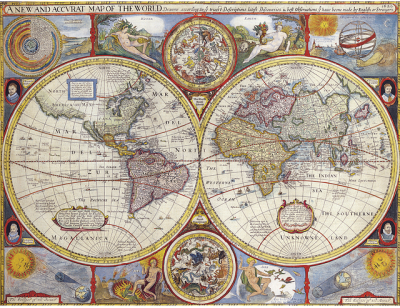

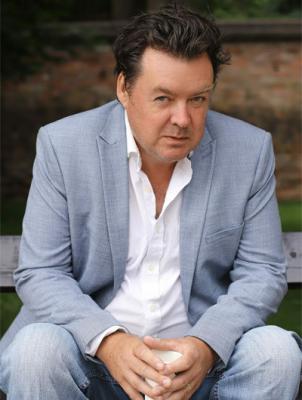
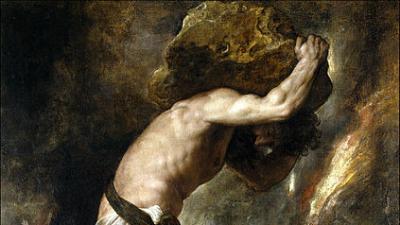

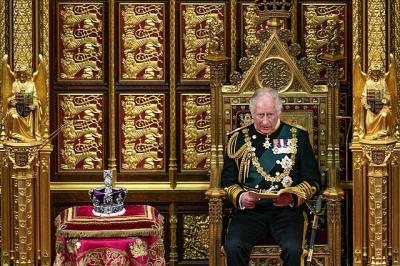

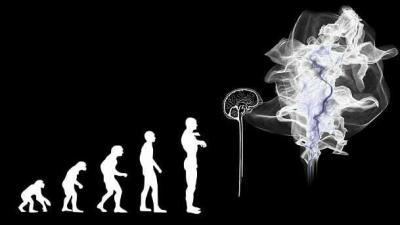



Comments (0)